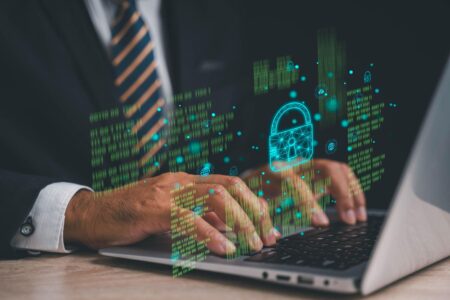Anthony Milewski is the founder of The Oregon Group and an influential figure in the mining, metals and energy industries.
Investor confidence, a company’s license to operate and the ability to attract top talent all hinge on public perception.
Especially within the mining industry, compound this by a high-risk environment where regulatory scrutiny, environmental incidents and political tensions can erupt without warning. In such a setting, having a digital crisis communications strategy ready to go isn’t just smart; it’s essential.
Why Digital Resilience Matters
In the digital age, news—good or bad—travels faster than ever. One incident can spiral across social media, investor forums and news sites before a company even drafts a response. Social media can create situations where tens of thousands of people can learn about an incident before management has had time to even process a situation, let alone respond.
Mining companies can’t assume they control the narrative anymore. Trust must be earned daily through transparency, speed and consistency. Digital resilience—the ability to take a hit, respond effectively and recover—is becoming a non-negotiable for any mining company serious about its future.
Building A Foundation Before Crisis Hits
It is important for companies to have a plan. This includes having service providers and information outlets set up ahead of an incident. Preparation allows a management team to react much faster than spending days trying to put together social media accounts or finding a crisis communications firm.
Plan for the “what ifs.” This involves focusing on:
• Risk Scenarios: Map out likely risks like spills, accidents and human rights allegations; prepare tailored playbooks.
• Stakeholder Lists: Maintain updated lists of investors, community leaders, regulators, NGOs and employees.
• Core Messaging: Draft flexible messaging tied to your company’s values.
• Spokesperson Readiness: Train executives to handle tough media moments under pressure.
Strengthen Digital Infrastructure
Building a strong digital foundation means:
• Active Owned Channels: Keep your website, LinkedIn and other social media accounts active and trusted.
• Content Bank: Stockpile authentic content like videos, ESG updates and community stories. Have these ready to reinforce your broader narrative.
• Monitoring Tools: Use tools to detect mentions of your company early, giving you precious time to respond.
When The Crisis Hits
Within hours of a crisis, it’s important to respond quickly, consistently and with genuine engagement:
• Act Fast, Say Something: Issue a holding statement within an hour if possible—acknowledge the situation and commit to updates.
• Unified Messaging: Make sure every platform—website, social media, emails—tells the same story.
• Be Authentic: People smell corporate spin a mile away. It’s better to be real than perfect.
• Two-Way Communication: Don’t just broadcast—listen, engage and correct misinformation quickly.
Recovery Is A Marathon, Not A Sprint
The most resilient companies treat crisis response as the beginning of long-term reputation management. Here are some steps to take well after an initial incident has passed:
• Debrief and adjust. Review what worked and what didn’t.
• Stay transparent. Keep stakeholders updated long after headlines fade.
• Rebuild through action. Highlight ESG wins, thought leadership and community investment stories.
Unique Challenges For Mining
Mining companies face heightened reputational risks on several fronts. Because mining involves the extraction and disruption of natural landforms, it inherently carries a higher environmental impact and draws public attention. Even minor environmental disturbances can attract intense scrutiny and provoke strong reactions, making the industry more susceptible to reputational damage than many others.
Missteps in community relations—especially involving Indigenous or remote communities—can lead to long-term harm. Regulatory changes or investigations can quickly escalate into major crises. Adding to these challenges is the previously mentioned speed at which misinformation spreads.
Digital preparedness is increasingly the factor that determines which companies can manage these pressures effectively and which ones are caught off guard.
Real-World Wins
Many companies have demonstrated effective responses to high-stakes reputational threats. For example, after a major tailings dam failure, I witnessed one leading mining firm launch a bilingual microsite, host live Q&A sessions on Facebook and share consistent updates across all digital channels. This proactive, transparent approach helped contain public backlash and maintain stakeholder trust.
In another case, a junior miner became the target of a viral social media campaign alleging human rights abuses. Rather than stay silent, the company responded within hours by posting video messages from local community leaders and issuing clear, fact-based rebuttals. In both instances, prior investment in digital communication tools and strategies enabled these companies to act swiftly, shape the narrative and reduce reputational damage.
Final Word
In mining, it’s not “if” a crisis will happen—it’s “when.” Treating digital crisis communications like an afterthought is a dangerous gamble.
The smartest mining leaders are acting now: building strong digital foundations, preparing their teams and committing to transparency. It’s not just about protecting a brand—it’s about protecting the future of the business.
Forbes Business Council is the foremost growth and networking organization for business owners and leaders. Do I qualify?
Read the full article here











